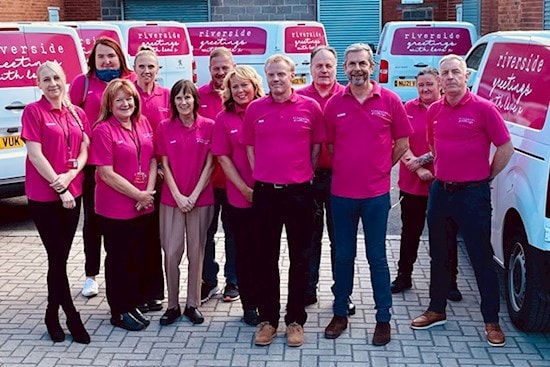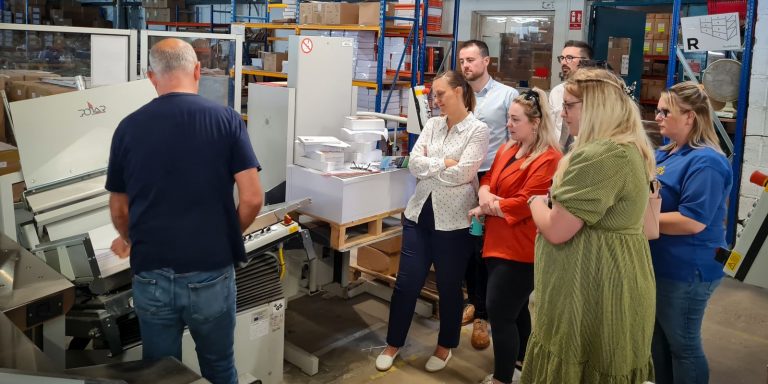2024 Business Predictions: Graham Edward, Managing Director, Edward Architects
Merrion Centre to evolve as plans submitted for Leeds student accommodation
Leeds-based property investor and developer, Town Centre Securities PLC (TCS), has unveiled the next phase of evolution for the Merrion Centre in Leeds, with a planning application that is set to transform the 1m sq ft mixed used scheme.
For the first time, the Merrion Centre is looking to introduce residential accommodation to its offering that has been part of the retail, office and leisure landscape of Leeds for the last 60 years.
In a bid to address the burgeoning demand for accommodation in the area, TCS’ planning application introduces two new buildings within the Merrion Centre. These structures are designed to deliver 1,110 student bedrooms, comprising a range of studios and cluster bedrooms.
The student accommodations will be complemented across both buildings with a range of amenities, including residents’ lounges, co-working spaces, meeting spaces, cinema, gym, karaoke room, 191 secure cycle spaces and external terraces.
This development would involve the conversion of the 13 storey Wade House, a 1960’s office building which has been predominantly vacant since May 2021. This sits adjacent to a new 35 storey tower, on the site of 100MC which was previously consented as a new build office scheme.
Edward Ziff, chairman and Chief Executive of TCS, said: “We have identified significant untapped potential within our Merrion estate, strategically positioning it for future growth.
“We are delighted to submit this crucial planning application which signifies the commencement of our upcoming strategy for the Merrion Centre. Our dedication to investing in and enhancing this mixed-use city centre destination is resolute, and we are excited to embark on this next phase of development.
“The surrounding location and demographic has continued to evolve over previous decades, more recently with the first direct arena and numerous student and residential developments. These changes are set to continue with further developments coming forward including the proposed Convention Centre on Merrion Way.
“Our proposition and offer across the Merrion Centre has consistently evolved to address the changes in demand across the retail and leisure elements. This application has been carefully considered to strike a balance of reuse first with the re-invention of Wade House.
“The two buildings provide a rare opportunity to deliver a complimentary student offer which will benefit from the vast array of retail and leisure amenities that the wider estate offers.”
New technology means better performance is on the cards for Riverside Greetings
Heating network provider extends supply system to more homes in Leeds
Agemaspark founder wins lifetime achievement award in Doncaster
Creative agency’s input bolsters teaching resource in Cleethorpes
Work done by Lincoln-based creative production agency Ruddocks has helped a educational project led by the Greater Lincolnshire LEP to be recognised as an example of good practice in a national report.
Agreement with EU and Norway gives UK fishing industry opportunities worth £700m
COP that: Supermarkets won’t be able to stock items produced by harming the world’s forests
“Through our work at COP28 on forests, food, and nature we are reversing the loss of biodiversity, increasing food security, and tackling climate change – safeguarding these critically important landscapes for generations to come.”
Biomethane fuel supplier starts work on Doncaster depot
Equity group endorses newly-established Charter
A year after the launch of the CATCH Equity, Diversity, Inclusivity, and Belonging Network, member companies have endorsed the organisations newly-established Charter and its accompanying guidelines.
Current Chair Nina Stobart of Phillips 66 says this demonstrates their collective commitment to shaping an industry that is resilient, adaptive, and inclusive.
With the sector currently facing a notable skills shortage and with a surge of job opportunities expected from upcoming large-scale engineering and construction projects, ensuring a diverse talent pool and equal opportunity has never been more crucial.
The group boasts a membership of highly skilled industry professionals and therefore has established four specialised sub-committees: Policy, Recruitment and Outreach, Allyship, and Training and Development to tackle some of the industry’s most pressing challenges. Nina, External Communications & Public Affairs Lead at Phillips 66 said: “Promoting and delivering EDI&B in the workplace is an essential aspect of good people management. It’s about creating working environments and cultures where every individual can feel safe and a sense of belonging and is empowered to achieve their full potential. “Our new Charter is a commitment that we are on that journey to help our business and the region reach our Vision which is to be part of a progressive and equitable region where businesses support a fully inclusive and diverse workforce in an environment where they feel seen, heard, supported, and valued. To do this we all need to play our part by embracing difference, valuing everyone’s contribution, treating people with dignity and respect and increasing our understanding by hearing lived experience of others. Only by doing this can we take the appropriate positive steps forward to ensure we can meet the needs of everyone. We know this really does matter. It matters for everyone, and it must be a priority, not just in words but in action.” Lisa Buck, CATCH’s Head of Stakeholder Engagement, said: “The inception of this network was inspired by discussions within the CATCH HR leaders forum. Regional businesses expressed a feeling that, despite commendable efforts already underway, there was vast potential for more impact if we all worked together. Our sessions have been lively and uplifting, with influential people eager to collaborate in enhancing the industry as a more inclusive workspace.” Companies that have signed up to the Charter include – Philips 66, Yara International, Tronox, Humber Bank Instruments, OLG, Lenzing, Solenis, and Gassco.











